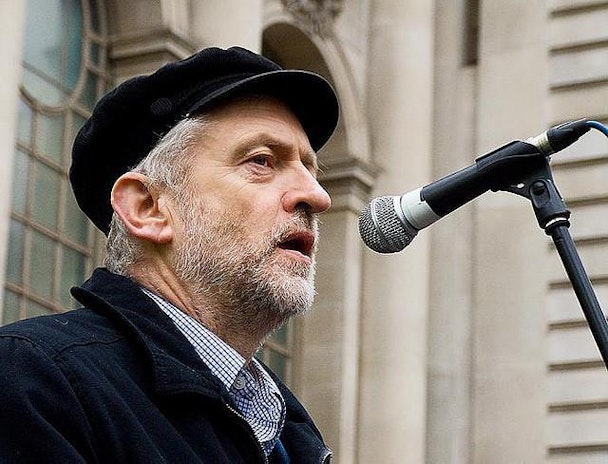If brands can learn anything from the rise of Jeremy Corbyn, it's that authenticity is a force to be rationed
Dazed Group’s creative strategy director Jonny Kanagasooriam takes aim at Jeremy Corbyn as he looks at the trend of brands gambling their credibility in a quest for authenticity.

In 2005, The Thick Of It reinvented political satire, showing us how intertwined the language of Whitehall and marketing had become. 10 years later, as we’ve transitioned from Blairite Britain to ‘Big’ society, Armando Iannuci’s art has barely had to imitate life. Long gone are the Saatchis’ commanding maxims hoisted above the common man on looming billboards, replaced instead with focus group-tested sound bites.
Now we live in a world where the prime minister eating crisps on a budget airline can be an anti-austerity-meme within an hour. 21st century politics is immediate. Like a nervous social media editor pushing a post live, every action is micromanaged to avoid negative backlash and garner praise.
Then there’s Jeremy Corbyn. A man who just doesn’t care what you think and seems to be winning the hearts and minds of a disenfranchised left. You wouldn’t dare put him front of a focus group for fear he’d say something ludicrous (reopen the mines anyone?), yet Corbynmania has ignited the Labour leadership contest and driven unprecedented subscriptions to the party (the biggest surge in decades). If his job were to sell politics he should be getting a bonus, which presumably he’d turn down. The truth is, that despite being horribly stuck in the past, the rise of Corbyn has a distinctly modern trajectory, successfully translating retweets into party registration.
The key is authenticity. He’s genuine, passionate, human and devoid of the PR-ready lizardry of modern politicking. Yet there is a very real danger that the authenticity of ‘Brand Corbyn’ will overwhelm the real business of politics. It’s unbalanced, anti-media, anti-collaboration, uncontrolled and an unscheduled gamble for a bruised Labour party. An advert for ‘real’ politics led by a part-time politician who, if they’re not careful, may end up in charge.
We’re seeing a similar gamble being made every day by previously risk-averse brands. Allying themselves to meaningful causes or topics, stretching the limits of their credibility, in a quest for authenticity. By chasing awareness or reappraisal with younger (ie millennial or Gen Z) audiences, brands are championing anything from environmentalism to female, gay or trans rights and in doing so taking a calculated risk. Moving from a world of sponsorship and partnerships into the business of joining movements.
It’s hard not to raise an eyebrow at Unilever capitalising on the counter-cultural female agenda of Broadly to sell more Tresemmé, but the gamble could pay off. Similarly Bezos bolstering Prime with a £160m wager on pugilistic patron saints of middle-England Clarkson & Co is an extremely chancy roll of the die. After all, a shrewd investment to open up new audiences could become easily come undone with one tweet or punch. Authenticity is a force that needs to be rationed, not applied liberally, especially by those using it to gain credibility for commercial gains.
After all when you peel away the beard, geography teacher-chic or gritty content about bikergirl-gangs, you’re left with the straightforward business of marketing.
